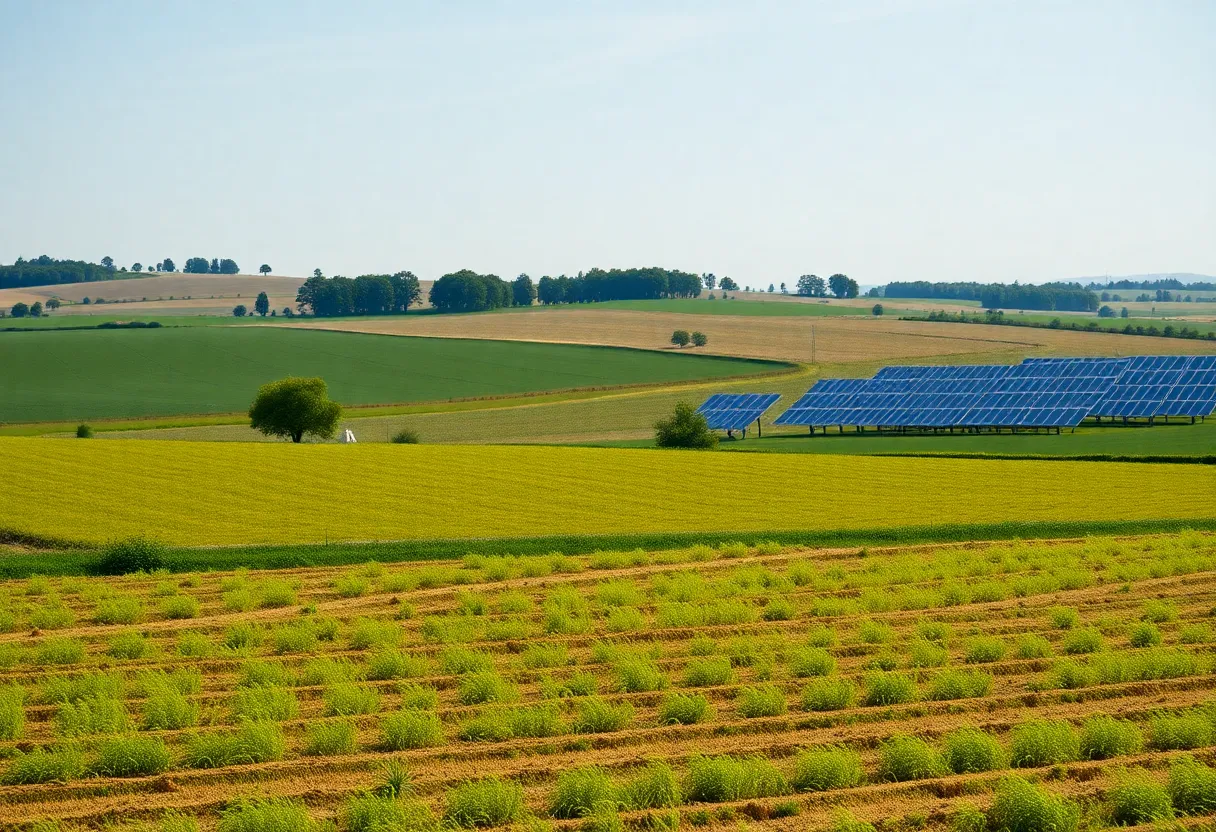News Summary
Rural counties across the U.S., including Arkansas, are increasingly banning or restricting new wind and solar energy projects due to community concerns. With about 20% of counties involved in this trend, local governments are pivotal in the renewable energy development landscape. Key regulations, such as Arkansas’s Wind Energy Development Act, have led to moratoriums, hampering potential economic benefits from renewable initiatives. Despite challenges, some projects still progress, highlighting the need for a balance between agricultural land use and renewable energy infrastructure to address residents’ concerns.
Little Rock, Arkansas – Rural counties across the United States, including Arkansas, are increasingly imposing restrictions or outright bans on new wind and solar energy developments. Approximately 20% of counties nationwide are participating in this trend, focusing on regulating the expansion of renewable energy projects within their jurisdictions. This growing resistance is being shaped by local governments, which play a critical role in the future of wind energy development in states like Arkansas, Louisiana, and Mississippi.
In Arkansas, the Wind Energy Development Act has stringent regulations that have empowered five counties to enact moratoriums on wind and solar projects. Additionally, legislative actions such as Mississippi’s Senate Bill 2227 and Louisiana’s HB 459 have caused delays for numerous promising renewable energy projects that could have significant benefits for local economies.
Despite these setbacks, some renewable energy initiatives are still making progress. Projects like Cordelio’s Crossover Wind in east Arkansas and AES’s Delta Wind in Mississippi are either operational or in the developmental phase. The American Clean Power Association has introduced a Model Wind Ordinance, suggesting counties develop balanced local rules that can foster economic investments while safeguarding property rights and legal interests.
Opportunities and Challenges
Renewable energy represents a vital opportunity for rural communities, potentially leading to economic growth and a reduced reliance on fossil fuels. Recent solar projects in Arkansas, such as a $4.75 million utility-scale installation by Silicon Ranch, have received positive reactions from local officials and are projected to contribute additional tax revenue as they become operational.
However, concerns persist among residents in areas designated for renewable energy projects. Many are worried about potential declines in property values, environmental implications, and feelings of exclusion from the decision-making process surrounding these developments. Community-wide discussions are ongoing about finding a balance between agricultural land use and renewable energy infrastructure, as evidenced by public hearings for the 300-megawatt Downstream Solar Project proposed by Invenergy.
This project aims to convert 6,000 acres of farmland into solar infrastructure, capable of powering over 70,000 homes and generating substantial local tax revenue throughout its lifespan. Such discussions highlight the complexities involved in integrating renewable energy systems into rural landscapes, where traditional agriculture has long been the norm.
Political Climate and Local Actions
The political climate surrounding renewable energy is evolving, with shifts in public sentiment becoming more favorable. This is particularly evident as local leaders recognize the potential economic benefits that wind and solar projects can bring to their communities. A recent decision by Searcy County officials to reject a moratorium on wind energy construction highlights the effort to comply with existing regulations while addressing the interests of local residents.
Resistance to wind energy development continues to grow, fueled by anti-wind energy groups that are raising concerns about the implications of foreign companies entering the local energy market. As discussions progress, local leaders stress the importance of adhering to state regulations while simultaneously ensuring that the economic advantages of renewable energy initiatives are realized within their communities.
As the landscape of rural renewable energy development continues to shift, the outcomes depend significantly on local governance and public attitudes toward integrating these projects into their communities. With balanced regulations, rural areas have the potential to harness renewable energy resources effectively while addressing the concerns of their residents.
Deeper Dive: News & Info About This Topic
- Utility Dive: Ordinances in Arkansas, Louisiana, and Mississippi Discourage Renewables
- Wikipedia: Renewable Energy
- Arkansas Business: Renewable Energy Moratoriums
- Google Search: Renewable Energy Moratoriums Arkansas
- Triple Pundit: Solar Energy Development in Arkansas
- Google Scholar: Solar Energy Development Arkansas
- Arkansas Times: Searcy County Denies Moratorium on Wind Energy
- Encyclopedia Britannica: Wind Energy
- Arkansas Advocate: Renewable Energy for Arkansas’ Future
- Google News: Renewable Energy Arkansas

Author: STAFF HERE NEWORLEANS WRITER
The NEW ORLEANS STAFF WRITER represents the experienced team at HERENewOrleans.com, your go-to source for actionable local news and information in New Orleans, Orleans Parish, and beyond. Specializing in "news you can use," we cover essential topics like product reviews for personal and business needs, local business directories, politics, real estate trends, neighborhood insights, and state news affecting the area—with deep expertise drawn from years of dedicated reporting and strong community input, including local press releases and business updates. We deliver top reporting on high-value events such as French Quarter Festival, New Orleans Jazz & Heritage Festival, and Essence Music Festival. Our coverage extends to key organizations like the New Orleans Chamber of Commerce and Greater New Orleans, Inc., plus leading businesses in energy, healthcare, and education that power the local economy such as Entergy, Ochsner Health, and Tulane University. As part of the broader HERE network, including HEREShreveport.com, we provide comprehensive, credible insights into Louisiana's dynamic landscape.

